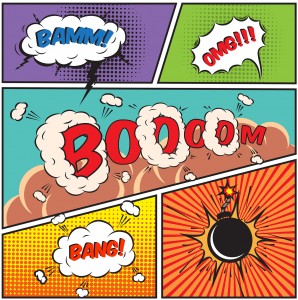4 Vocal Traits That Keep You from Getting Hired

She took a public speaking course tailored to non-native speakers. It worked on her accent and, just as important, her inflection. It’s too soon to see if the results have paid off for her professionally, but I have noticed her public speaking has improved.
Why relate this anecdote? A Fast Company story on “Four Speech Habits that Are Undermining Your Job Choices ” specifically dealt with the problem of inflection.
Not only how you talk, but also the way you say it, can hurt you in a job interview. As Fast Company points out, “uptalk” is a problem, like, you know? Or as they observe, “You might know this as ‘Valley girl’ speak, but it’s creeping into Silicon Valley boys’ clubs, too.”
According to the BBC, men and women both are increasingly guilty of ending statements with the inflection of questions. It sounds insecure, and it can keep people from taking you seriously
The BBC article says the findings were presented as part of a study at the Meeting of the Acoustical Society of America in California. Claire Nance, a linguistics lecturer at Lancaster University, commented to the BBC that the research reinforced the fact that uptalk was “increasingly widespread across all kinds of people. Typically, women are trail-blazers in language change and take up innovative features first, then males start using them later.”
So neither a Valley Girl nor Valley Boy be. It can only hurt your career advancement or hiring prospects.
The next phenomena is called “vocal fry,” and I have to admit it was one I had never encountered before. According to the Fast Company article, vocal fry is the “creaking, drawn-out tone that emerges when speaking below your normal register.” It affects first impressions for both men and women.
Fast Company links to audio files with examples. Once you hear them you will know exactly what vocal fry is. It also has a scientific name: glottalization.
The article cites research in PlosOne, an international, peer-reviewed, open-access, online publication. It says, “In a large national sample of American adults we find that vocal fry is interpreted negatively. Relative to a normal speaking voice, young adult female voices exhibiting vocal fry are perceived as less competent, less educated, less trustworthy, less attractive, and less hirable. The negative perceptions of vocal fry are stronger for female voices relative to male voices. These results suggest that young Americexprean females should avoid using vocal fry speech in order to maximize labor market opportunities.”
The next bad habit is pitch problems. The article succinctly addresses the pitch you should achieve: more James Earl Jones (“This is CNN”) and less Gilbert Gottfried, former pitchman for AFLAC.
The final speaking error that torpedoes job interviews and promotions is bad grammar. The article quotes Diane DeResta, who says, “The interviewer may question your education when you use incorrect grammar or slang. Expressions such as ‘ain’t,’ ‘she don’t,’ [and] ‘me and my friend’ aren’t appropriate. Be sure you speak in complete sentences and that tenses agree. The interview is not the venue for regional expressions or informality.”
Add to that list my personal pet peeve: saying ‘axe’ [I’m writing phonetically] instead of ‘ask.’ I’m trying to get my goddaughter to drop it from her lingo. She’s only 10, so I’m hoping I succeed before she hits the job market.

